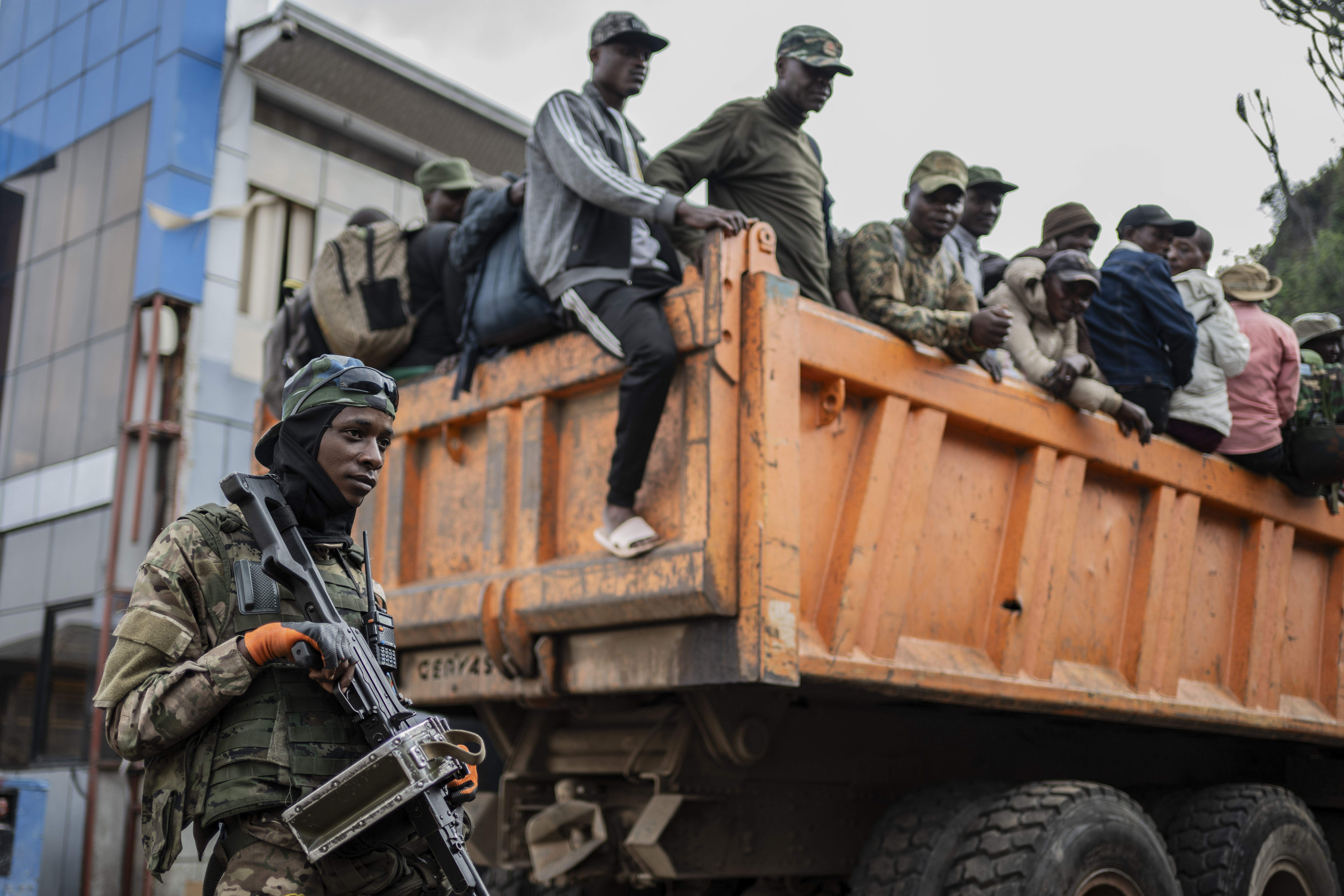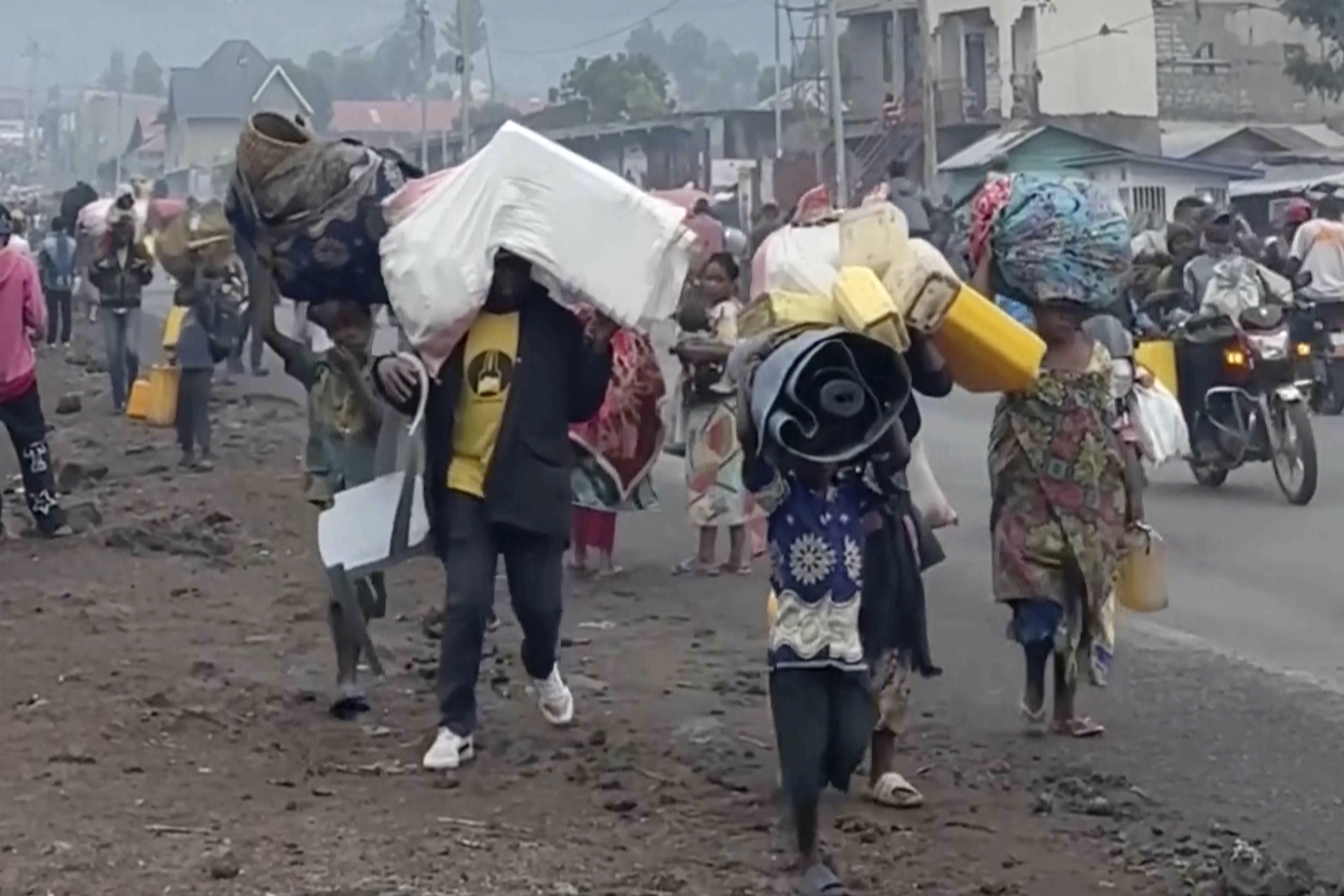At least 50 people were killed in weekend attacks in Congo’s conflict-battered east, with the government trading blame with Rwanda-backed rebels over who was responsible for the violence that quickly escalated the conflict.
The renewed violence that residents reported in and around the region’s largest city of Goma — which the M23 rebels control — was the biggest threat yet to ongoing peace efforts by both the Gulf Arab state of Qatar and African nations in the conflict that has raised fears of regional warfare.
Goma resident Amboma Safari recounted how his family of four spent the night under their bed as they heard gunfire and bomb blasts through Friday night.
READ MORE: Trump goes with his gut and the world goes along for the ride

“We saw corpses of soldiers, but we don’t know which group they are from,” Safari said.
In the second city of Bukavu, which the M23 also controls, dozens of the armed Wazalendo local militia members who fight alongside Congolese forces marched for a few hours towards the local airport as they appeared to stage a challenge against the rebels.
The group, which later retreated, declared a ceasefire on Sunday to give ongoing peace talks “a chance".
READ MORE: More than 30 people killed, 99 injured in Russian missile attack on Ukrainian city of Sumy

The decades-long conflict between Congo and the M23 rebels escalated in January, when the rebels made an unprecedented advance and seized the strategic eastern Congolese city of Goma, followed by the town of Bukavu in February.
The latest fighting has killed some 3,000 people and worsened what was already one of the world's largest humanitarian crises, with around 7 million people displaced.
In a statement, Congo’s Ministry of Interior said 52 people were killed between Friday and Saturday, including a person shot dead at Goma’s Kyeshero Hospital.
The ministry blamed the attack on M23.
READ MORE: Two charged after nine-year-old boy dies from accidental shooting

M23 spokesman Lawrence Kanyuka blamed Congolese forces and their allies for the attacks.
Kanyuka said in a statement that Congo's joint operations with local militias and southern African troops “directly threaten the stability and security of civilians” in the region.
The group said it has been compelled to “reconsider its position to prioritize the security” of the people in the area, suggesting the crisis could worsen.
Christian Kalamo, a civil society leader in the North Kivu province that includes Goma, said at least one body was seen on the streets on Saturday.
“It is difficult to know if it is the Wazalendo, the FARDC (Congolese forces) or the M23" that carried out the attacks, Kalamo said. “Now, we don’t know what will happen, and we live with fear in our stomachs, thinking that the war will resume.”
